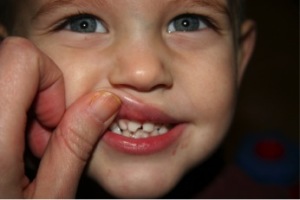In an attempt to follow the government’s recommended nutritional guidelines of five servings of fruits and vegetables a day, many parents encourage their children to drink fruit juices and smoothies. Unfortunately, this may have negative effects on their teeth. The high acid levels found in fruits and fruit juice can attack the teeth of young children and dissolve the outer surface of tooth enamel. Once the enamel has been damaged, children are at greater risk for cavities and gum disease. Fortunately, there are effective ways to prevent this damage from occurring, while still allowing children to safely enjoy their juices and smoothies.
Try these five tips for decreasing the risk of tooth decay and erosion:
- Rather than give your children juice or a smoothie as a snack, serve them drinks to accompany another snack, such as cheese, which will help neutralize the acid.
- Encourage your children to drink from a straw so that their teeth are less exposed to the acid and sugar.
- Don’t let your kids sip on their juice or smoothie over a long period of time. Make sure they know they need to finish their drink with their snack to avoid the build-up of sugar on the teeth.
- Follow up snack time with a glass of water to help rinse your children’s mouth out and dilute the sugars. Tap water that has been fluoridated will be especially beneficial.
- Don’t let your children have juice or smoothies before bedtime, as the sugar and acid will sit on their teeth all night, leading to erosion of the enamel.
There are a variety of ways to limit the negative effects of sugar and acid on your kids’ teeth while still allowing them to enjoy juices and smoothies. Make sure they’re flossing and brushing twice each day, and remember to schedule regular dental appointments with your pediatric dentist. By following these tips and practicing good oral hygiene, your children can remain healthy and cavity free.


